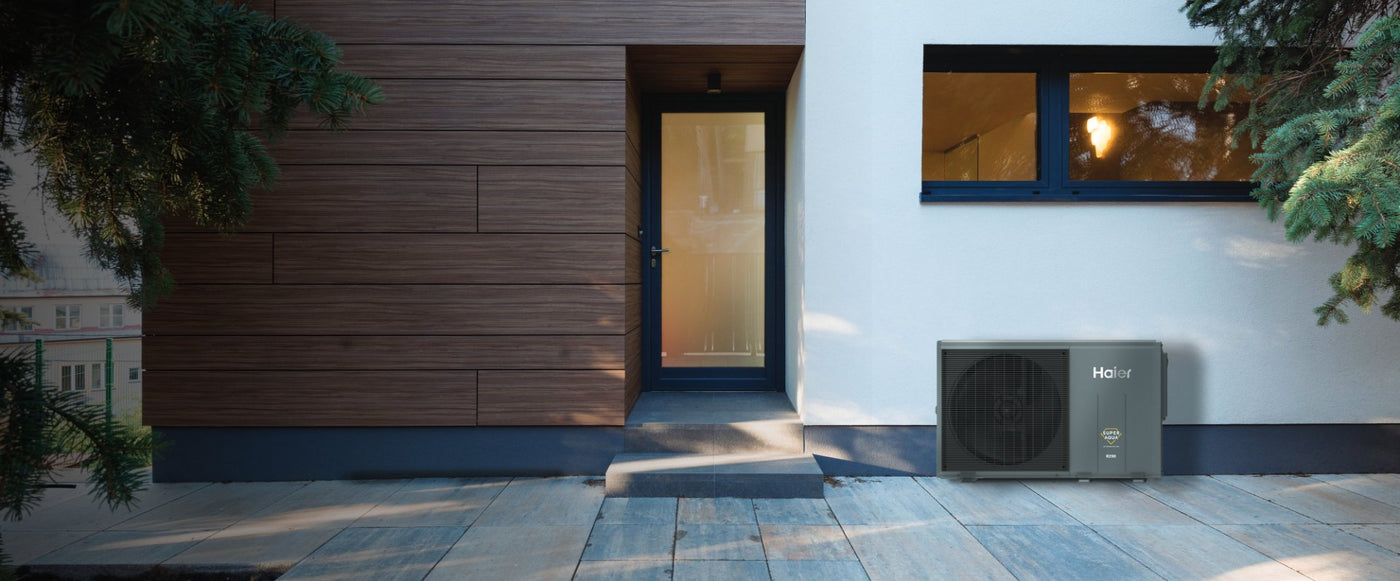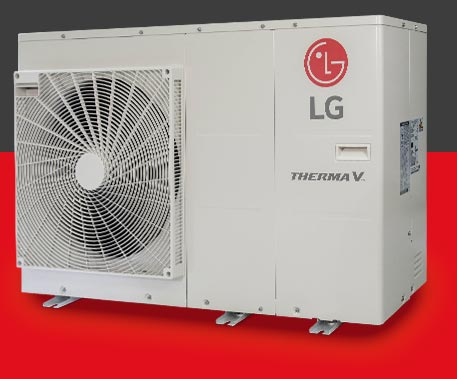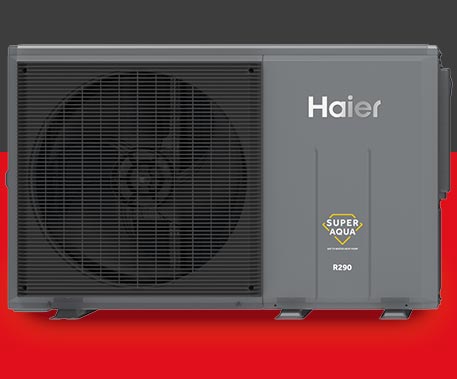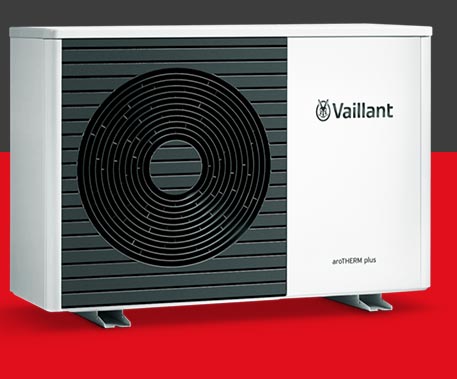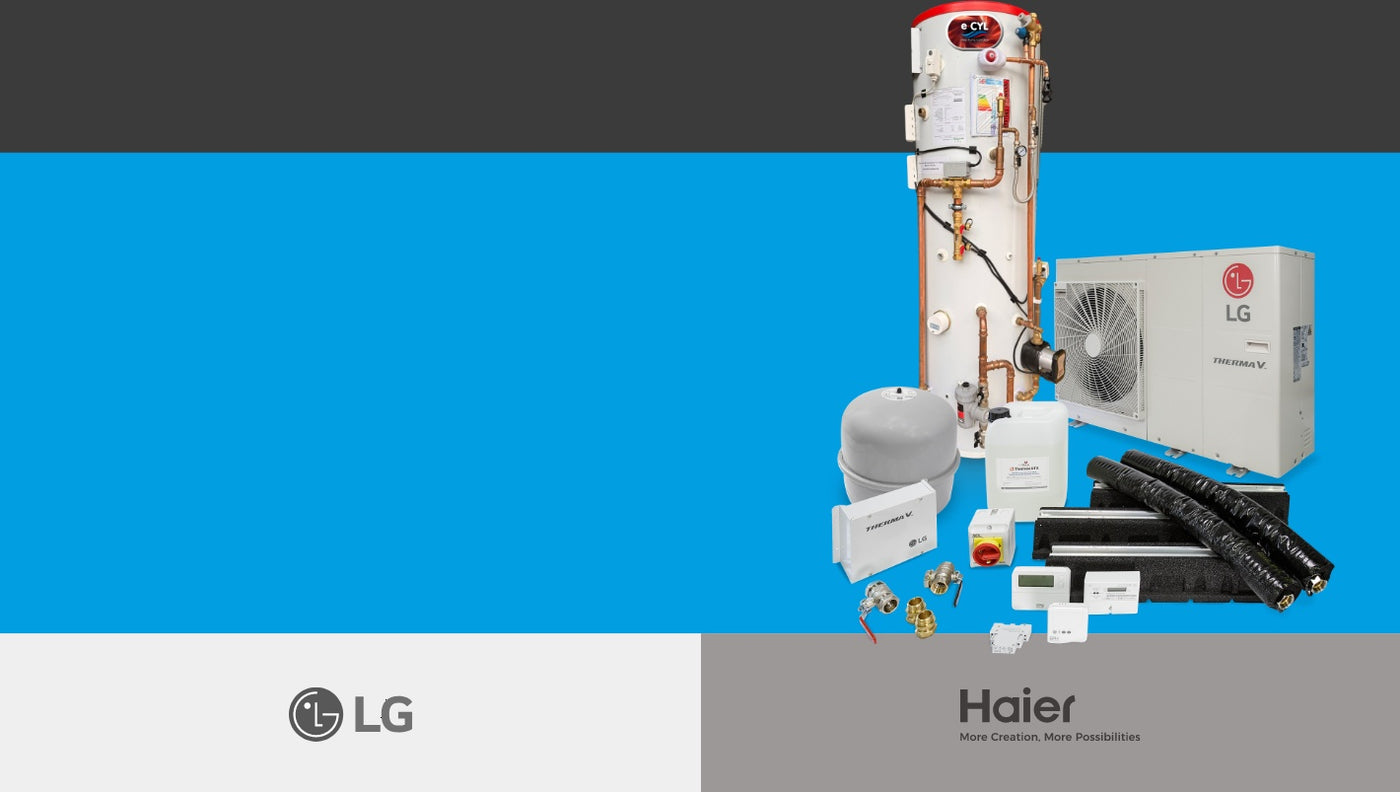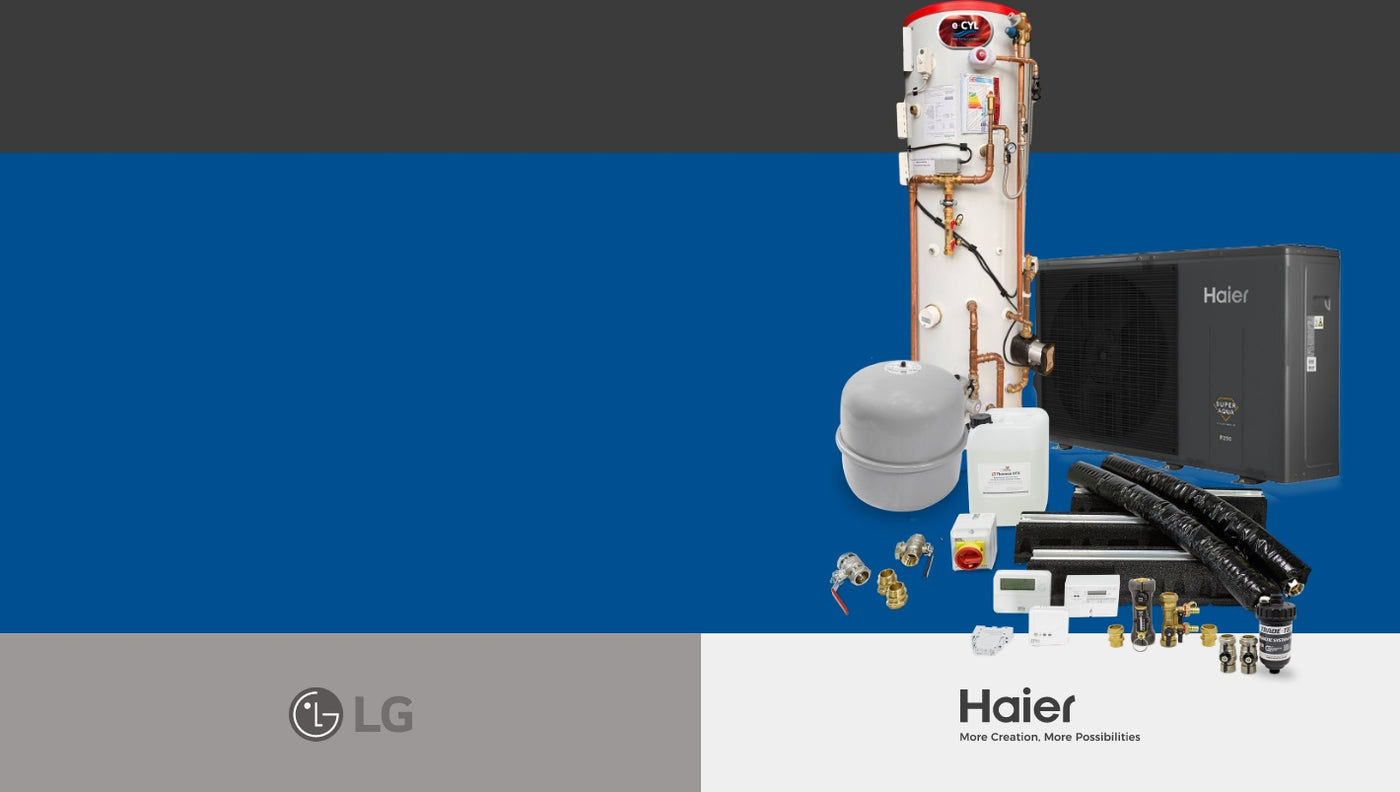Our Partners are:
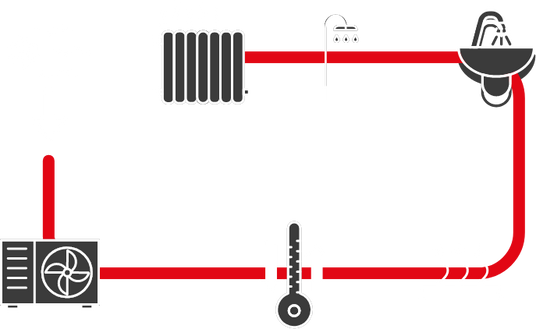
How do Air Source Heat Pumps work?
Air source heat pumps are a low-carbon heating system that uses similar processes found in a refrigerator or freezer. A fan draws the air from outside and passes it through an evaporator where the refrigerant circulates and evaporates. The refrigerant then goes through a compressor, which increases the temperature. The heated refrigerant then transfers its heat to the heating and hot water circuits of the building. Once the liquid cools down, it gets used for the next cycle. A benefit of heat pumps is they only require a small amount of energy to run, even during the coldest weather.
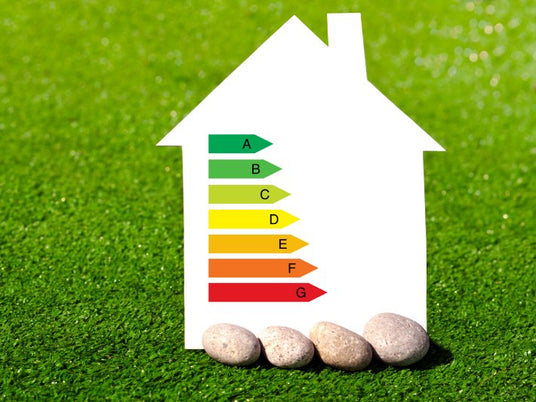
There are many other advantages to choosing an air source heat pump:
- ASHPs are extremely energy efficient
- They can reduce homeowners bills by up to 25%
- They are very quiet… they make as much noise as your refrigerator
- Air source heat pumps are easy to install
- They are low cost and easy to maintain
- There are government grants available to offset some initial costs
- Do you want to learn more? Visit our Air Source Heat Pump FAQs page
-
Want to learn more?
Contact us to speak to one of our heat pump experts
-
Established in 2004, Unitherm are an Air Source Heat Pump supplier dedicated to promoting renewable heating products. This includes expertise in air to air Heat Pumps, Underfloor Heating and plumbing accessories.
